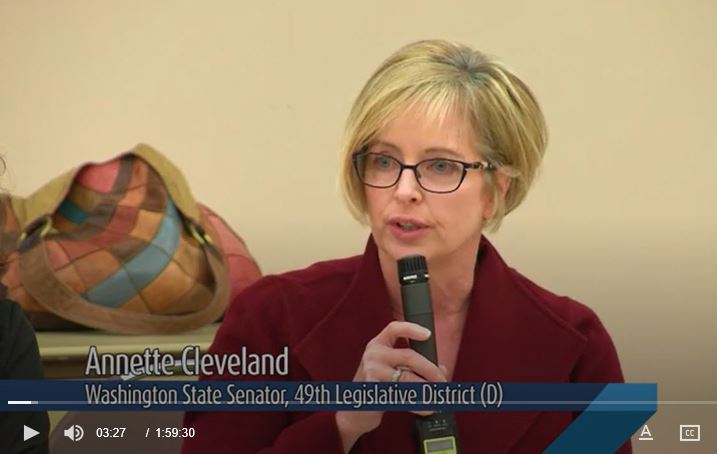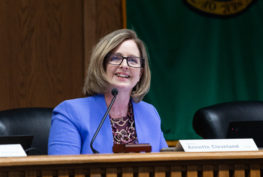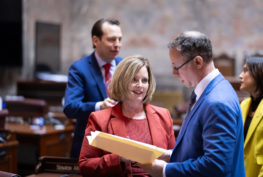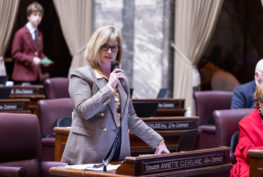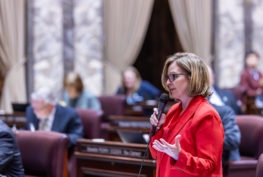Sen. Annette Cleveland (D-Vancouver) is calling for the state Department of Health (DOH) to provide coronavirus vaccinations more equitably to Black, Indigenous and People of Color (BIPOC), particularly among essential food workers in Southwest Washington.
In a letter to Secretary of Health Umair Shah, Cleveland said the state needs to adjust its delivery model to provide vaccinations to essential workers among the Latino community whose access to vaccinations has been hindered by several factors. The letter cited the state’s need to provide vaccinations to 240 workers at Foster Farms in Kelso, 300-plus workers at Columbia Fruit LLC in Woodland, and 280 workers at Firestone Pacific Foods in Vancouver. Cleveland also called for the state to provide vaccinations to the workers’ family members, who effectively face the same risk of exposure.
“These are essential workers who need protection urgently, but they’re not getting vaccinations because the current delivery system is unable to meet the needs of our BIPOC communities,” said Cleveland, who chairs the Senate Health & Long Term Care Committee. “It’s not right to ask these frontline employees to put their health on the line and leave their families exposed to higher risk.”
Cleveland’s letter requests a one-time waiver from DOH so that 2,000 doses of the vaccines can be prioritized for the Latino community in Southwest Washington.
“For people of color, it’s next to impossible to get vaccinations right now,” said Edward Hamilton Rosales, president of Southwest WA League of United Latin American Citizens Council 47013. “Number one, they don’t monitor the cases to provide access to the people who really need it. Two, our workers aren’t all English speaking. Three, most don’t have access to the internet. Four, they work during the hours the vaccinations are being offered.”
Rosales credited King County as a model for effective distribution to BIPOC communities through a vastly simplified distribution system that bypasses language barriers and the need for internet access.
“In King County, you show up and get the vaccination and you’re done,” Rosales said. “There’s not another county in the state that has provided the kind of access the BIPOC community needs.”
Cleveland acknowledged the state’s vast challenge in providing vaccinations but said extra measures are needed to ensure equitable distribution.
“These workers don’t fit into a nice little box,” she said. “A one-size-fits-all distribution model will not work for our BIPOC communities or provide equitable access to vaccinations for our workers who need them the most.”
